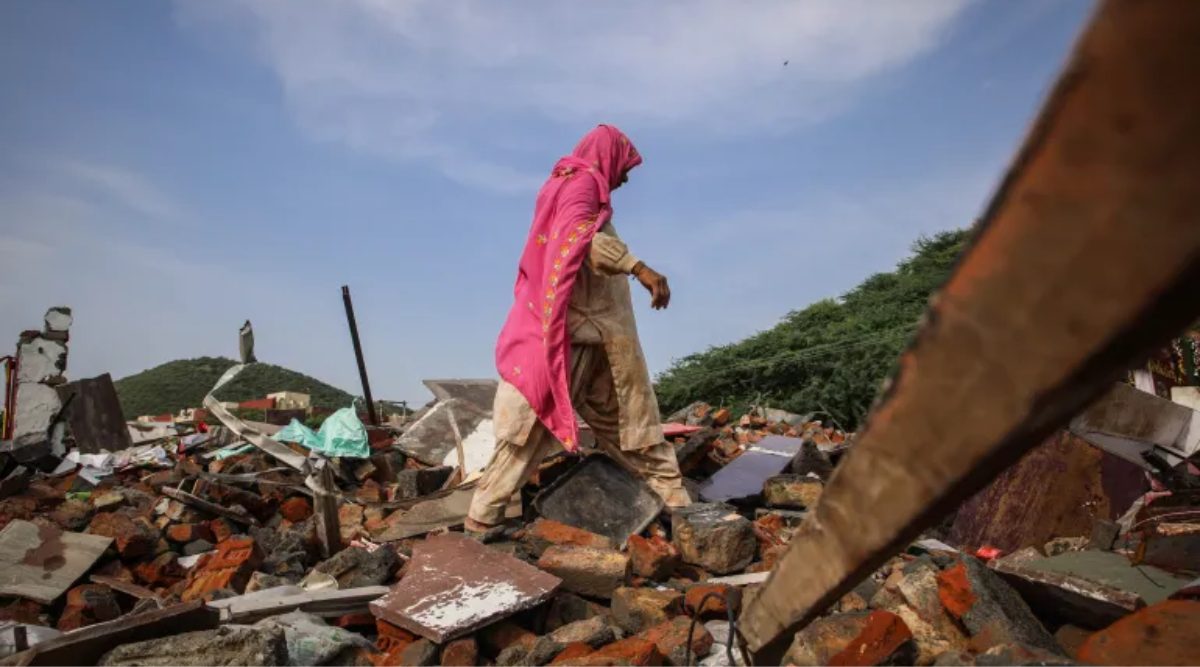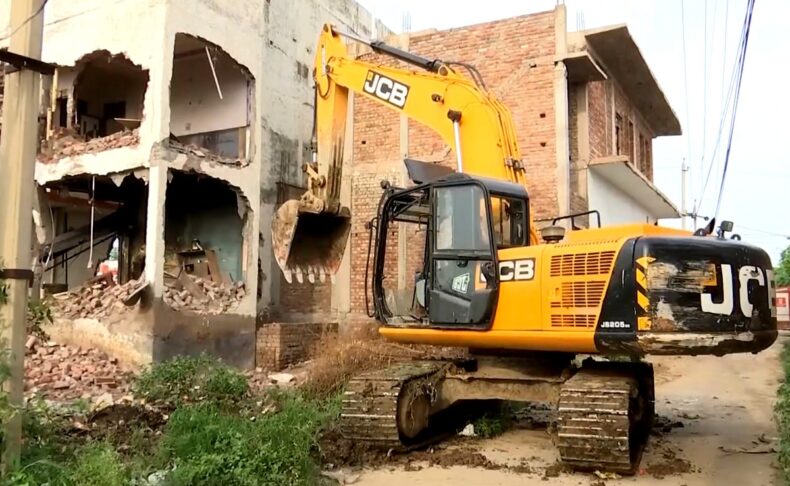The Punjab and Haryana High Court on 7th August delivered an order stopping the demolitions in the Nuh district of Haryana due to the communal conflict in the area. In the order, the court questioned if the bulldozers were bringing down the structures of a particular community alleging a law and order issue and also made a remark citing ‘ethnic cleansing’.
The order questioned if an exercise of ethnic cleansing was being undertaken by the state.
The court took the suo motu cognizance of the matter after the violence caused 6 people their lives and gigantic property loss, leading to a state of panic in Nuh, Gurugram, and nearby areas.
Several people who lost their homes claimed that they weren’t served any notice prior to the demolitions. The demolitions were gathering a lot of heat for their communal angle as many politicians commented that they were solely meant to target the Muslim community.
The authorities maintained their stand that they were to take action against the illegal dwellings and no one was their target for the same.

In the last 4 days of the demolition drive, more than 350 shanties and 50 cement structures were brought down.
Asaduddin Owaisi, the president of All India Majilis-e-Ittehadul Muslimeen (AIMIM) and a Hyderabad MP said that the government of Haryana led by Manohar Lal Khattar is favouring people who lie ideologically close to the BJP and Sangh and is giving collective punishment to Muslims.
The Punjab and Haryana High Court quoted an English writer and historian Lord Acton, “Power tends to corrupt and absolute power corrupts absolutely” while issuing the order to the Haryana government. Taking a dig at the comments given by the Home Minister of Haryana, Anil Vij, where he said that the bulldozers were a form of treatment (‘ilaaj’) undertaken by the government to tackle the violence in the area, the court said the state is using the ‘law and order’ excuse to carry out the demolitions.
The High Court asks the government to give information on demolitions
The court further asked the state government to publish a formal notice of how many buildings have been struck down in the last two weeks in Nuh and Gurugram, and also to state if notices were given before the demolitions.
On Monday, Deputy Commissioner Dhirendra Khadgata directed the authorities to halt the demolitions after the High Court issued its order.
The district administration faced criticism when they prevented a delegation of four members from the CPI (Communist Party of India) from entering the Nuh district. The confrontation between the CPI leaders and the police was recorded on camera. Binoy Viswam, a CPI MP, said that they weren’t allowed by the Police, indicating that the freedom of movement is restricted under the regime. He added that this reflects the current state of the country where only ‘troublemakers, thugs, and extremists have unrestricted mobility’.
Tensions persist in the areas affected by communal violence. Many of these regions are under curfew, and paramilitary forces are deployed to prevent any potential escalation.
The curfew was briefly lifted for four hours on Monday, during which ATMs were made accessible. The internet is still suspended in these areas.
According to Al Jazeera, the strong statement by the Punjab and Haryana High Court serves as a unique instance of India’s judicial system raising a question that is already being posed by human rights organizations and global experts.













